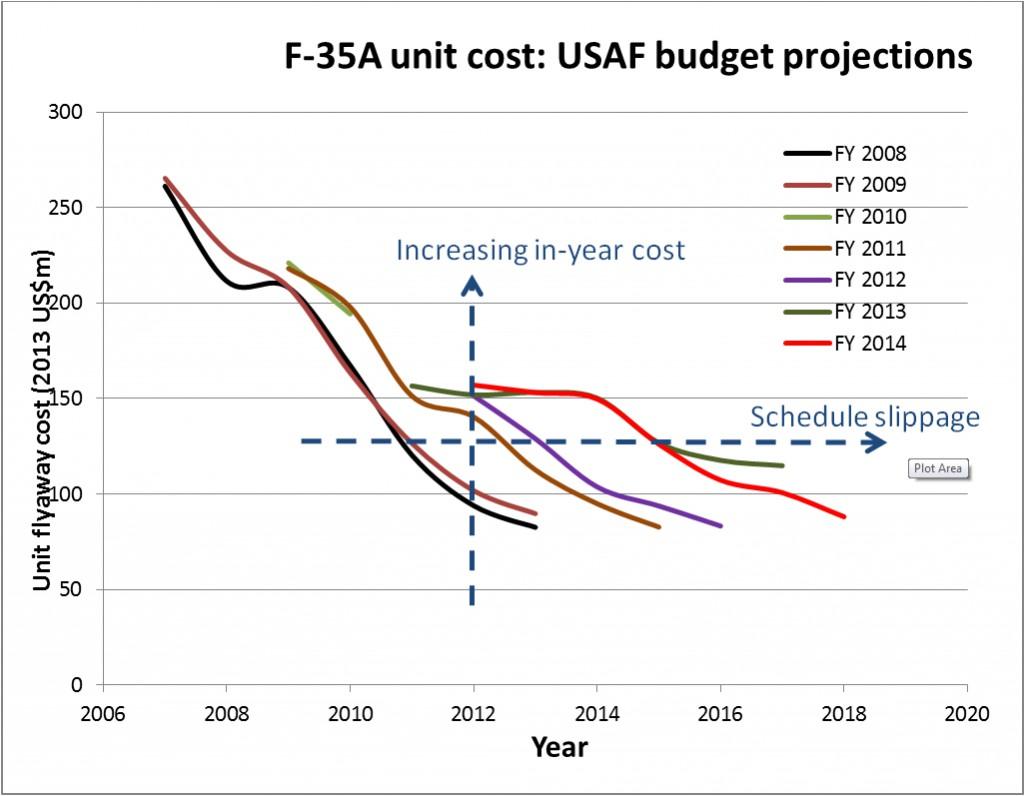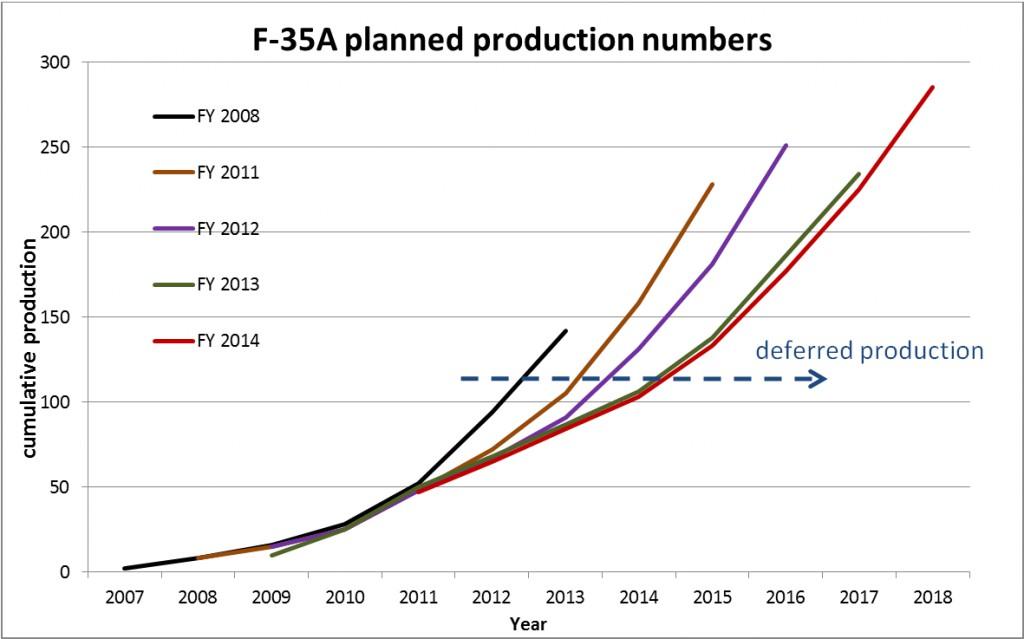I’ve been plotting the gross measures of the progress of the F-35 Joint Strike Fighter program pretty much since the day I joined ASPI back in 2006. It hasn’t always been a pretty story. It became obvious fairly early that the F-35 wasn’t going to buck the trends of history in terms of delivering more capability for less dollars. The projected cost has increased steadily, and the delivery schedule has moved steadily to the right, meaning that Australia and other customers have had to think about a ‘Plan B‘—exactly what we saw implemented last week in the White Paper announcement of an additional buy of Super Hornets.
The annual budget papers from the Pentagon have demonstrated both of these trends. The delays in delivery of capability and higher than expected costs has seen the American services steadily defer acquisition, preferring to spend their money elsewhere rather than buying into a manifestly immature program. The graphs below show these trends.
The first chart shows the expected flyaway cost (the cost of the aircraft itself, including engines but not any of the ancillaries required to operate it) over the forecast period for each USAF budget request from Financial Year (FY) 2008 to FY 2014. Back in 2007, when the FY 2008 budget was tabled, the USAF expected to be paying $83 million (all figures in 2013 US dollars) per aircraft by now. This year’s budget has the figure of US$153 million, a full 84% higher. Even five years from now the price won’t have come down in real terms to the expected 2013 number—the USAF expects to be paying $88 million for each of its aircraft in 2018. That’s obviously not a great result, and it’s consistent with my previous observation that this program has been more troubled than most.
Figure 1. USAF planned F-35A expenditure by year FY 2008 – 2014

But it’s also true that the USAF doesn’t have much choice. Without the F-35, it faces the choices of recapitalising on the F-15 and F-16 series (either through life of type extensions, new builds or both), resurrecting the F-22 Raptor production line (itself a prodigious consumer of resources for both production and maintenance) or—perhaps worst of all from a blue suiter’s point of view—buy aircraft produced for the US Navy in the form of the Super Hornet. For various reasons none of those are appealing options. That’s why the F-35 program has been ‘teflon coated’, receiving support from the highest levels even in an increasingly hostile fiscal environment.
And this year, for the first time, there’s evidence that the USAF is about to bite the bullet, committing to buy a substantial number of aircraft before the end of the decade. The second graph shows the number of F-35As requested in annual budget submissions over the same period as figure 1. Until now, each successive year has seen the USAF defer its acquisition of the F-35 to later years. In the FY 2008 budget, it was expected that there’d be 142 aircraft in its inventory or on the production line by this year. Today the number is less than 60% of that total. (In fact, the total number of all variants of the aircraft in production, including Navy and Marine Corps aircraft is only just over 100 now.)
Figure 2. USAF planned procurement quantities FY 2008 – 2014

As in previous years, there’s also some aircraft deferred—but this time it’s less than 5% of the expected total, representing a much smaller cut than in any previous year. And that’s in the face of the looming spectre of budget sequestration, which could see the total Pentagon spend downsized by 10%. With the pressure it’s likely to face on other programs in this environment, this is a significant vote of confidence in the F-35, which in turn might indicate that the program is in much better shape than has been the case in the past. Clearly risks remain, but the USAF seems to be about to place its bets. It might also mean that the RAAF will finally get its own F-35s before 2020.
Disclaimer: Lockheed Martin, the prime contractor on the F-35 program, is a corporate sponsor of ASPI. All figures in this blog are open-source information.
Andrew Davies is a senior analyst for defence capability at ASPI and executive editor of The Strategist.